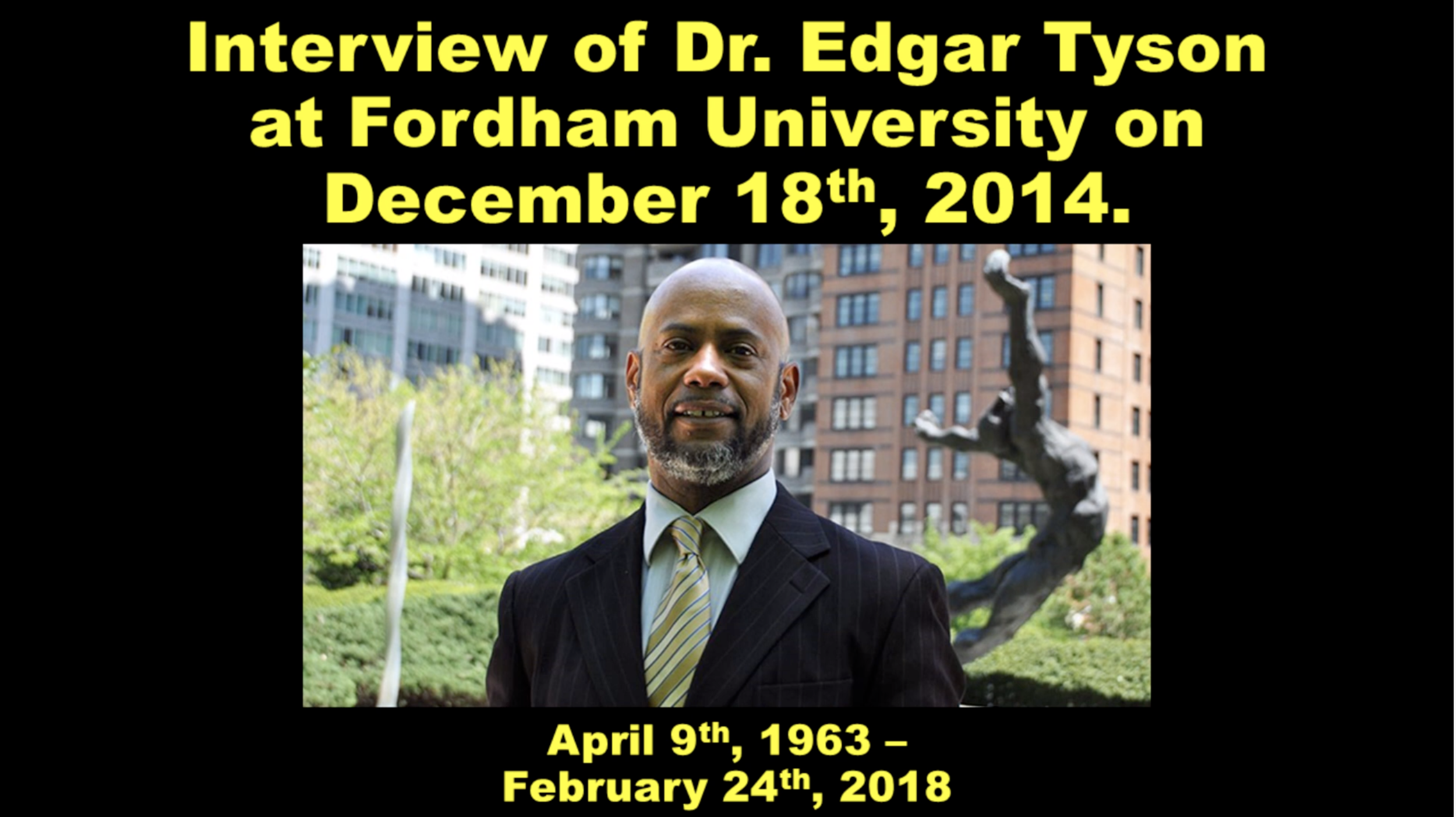ABOUT US
Edgar H. Tyson, PhD (April 9, 1963 – February 24, 2018):
Dr. Tyson was born and raised in Paterson, New Jersey. He received his Bachelor’s and Master’s in Social Work at Barry University and his PhD at the University of Tennessee. Dr. Tyson first pioneered Hip Hop Therapy (HHT) in 1996 while working in a residential facility in Miami-Dade County for abused and homeless youth. As both a researcher and clinician, he grounded this innovative practice in empirical research for 22 years before his sudden passing. Tyson first presented Hip Hop Therapy and his research findings in 1998 at the 20th Annual Symposium for the Association for the Advancement of Social Work with Groups in Miami, Florida. In 2002, he published his groundbreaking study in the Journal of Poetry Therapy.
Dr. Tyson began teaching at Fordham University’s Graduate School of Social Service in 2007, where he became a tenured associate professor. Previously, he had taught as an assistant professor at Florida State University and the University of Georgia. In his own words, Tyson’s main areas of focus were “cultural competence in assessment of child mental health and behavioral outcomes; applying contemporary, urban youth culture (e.g., hip hop) in prevention and intervention research; and developing and strengthening hip hop-based delinquency prevention and civic engagement models for youth.” His academic training was bolstered by over 20 years of social work practice in community-based, psychiatric, child welfare and juvenile justice settings, and he had made a “lifetime commitment to strengthening community-based organizations and institutions with a mission to pursue social justice, collective-efficacy of underserved communities, and growth and development of youth” (Fordham GSS, 2018).
Dr. Edgar Tyson and J.C. Hall presenting on Hip Hop Therapy at Fordham University in 2014
J.C. Hall, LCSW, EXAT:
Hall grew up on Long Island, New York. He is a Hip Hop artist by the name of Fienyx (pronounced “phoenix”), as well as a clinical social worker. Hall received his Bachelor of Science in Psychology at Fordham University in 2010. While pursuing his Master’s in Social Work at Fordham University’s Graduate School of Social Service, Dr. Tyson became Hall’s professor and mentor. Hall relied heavily on Tyson’s foundational HHT model during both years of his clinical practicum. Tyson’s supervision served as an integral touchstone for Hall while he incorporated his experience as a Hip Hop artist into his approach.
Hall performing during the cypher for the studio showcase in Mott Haven




